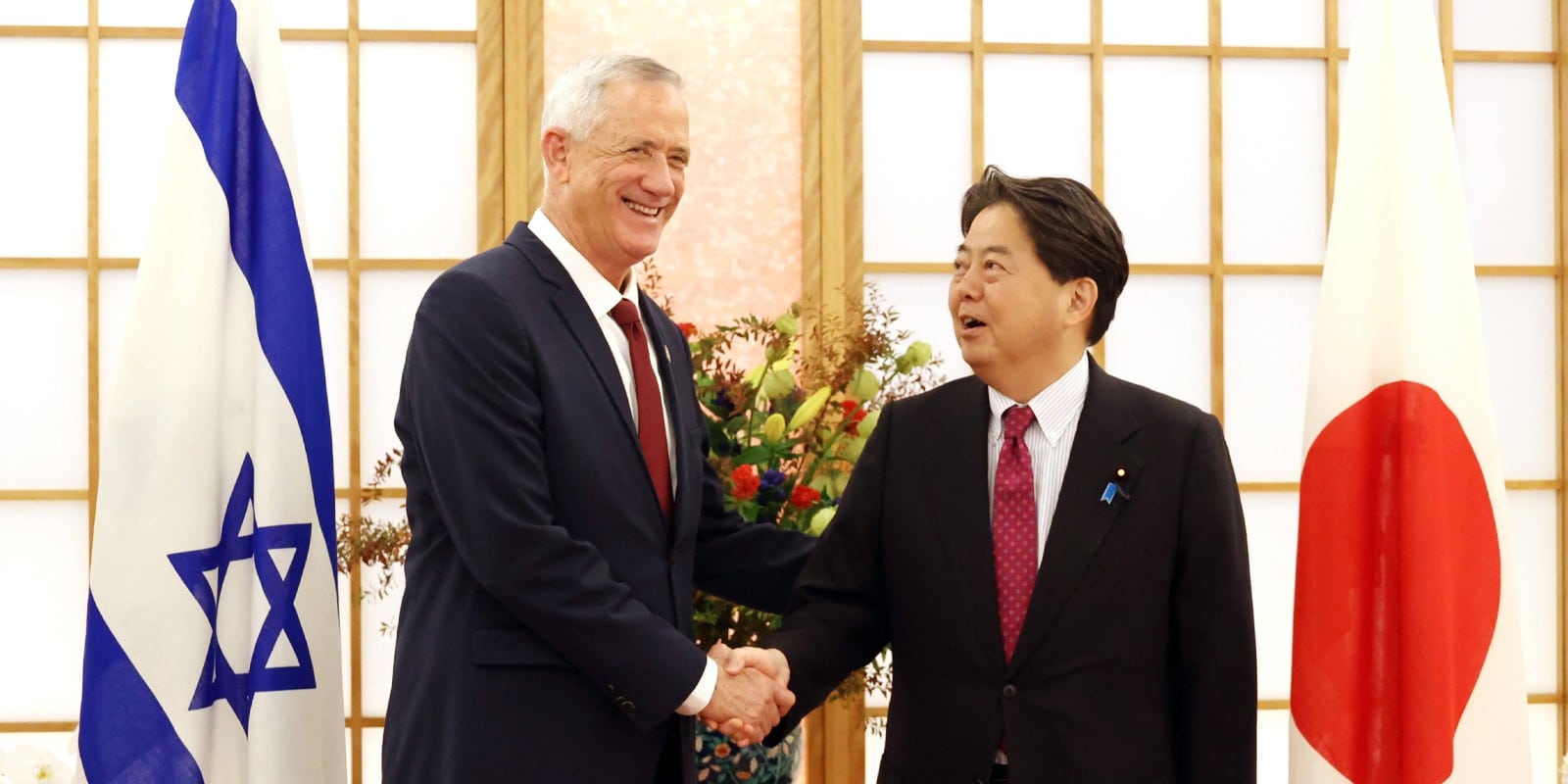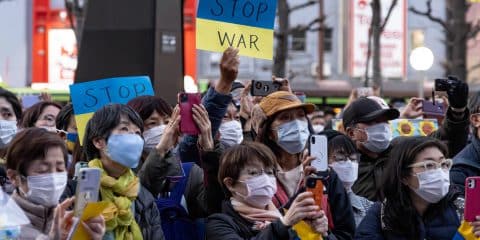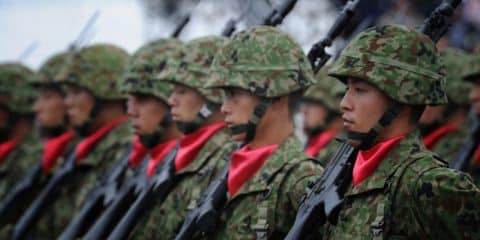Security ties with Israel are linked to Japan’s increased defense capabilities and more assertive foreign policy over the last decade.
At the end of August 2022 Israeli Defense Minister Benny Gantz visited Japan to mark 70 years of diplomatic relations between the countries. There he signed a memorandum of understanding for defense cooperation with his counterpart. While bilateral meetings regarding trade have been regularly carried out for the past decade, the defense agreement was a significant boost in terms of cooperation in the national security area.
Among the issues discussed were intelligence exchanges regarding the North Korea-Iran axis, possible collaboration in anti-missile defense (especially relevant given North Korea’s missile threat to Japan), and cyber defense. The understanding that Japan and Israel have complementary technological and industrial capacities was central to the memorandum.
Upon arrival at the Japanese Ministry of Defense, Gantz was met by an honor guard and then attended a meeting with Defense Minister Hamada Yasukazu where the memorandum was signed. He later met the Cabinet Secretary (the second most important policy position after the Prime Minister), Matsuno Hirokazu, the Minister of Foreign Affairs, Hayashi Yoshimasa, the National Security Advisor Akiba Takeo and the U.S. Ambassador to Japan Rahm Emanuel. The memorandum and the meetings were reported on in all the major media outlets in Japan and Israel.
While the two countries have had full diplomatic relations since the early 1950s, they were comparatively limited. The Arab Boycott and Japan’s dependence on oil from the Middle East made many enterprises cautious about doing business with Israeli companies. And Japan’s pacificism in the wake of the Second World War contributed further to its circumspect ties with Israel.
The turning point was the Madrid Peace Conference in the early 1990s with a slow but steady growth in commercial and to a limited extent defense related ties. More important were the initiatives of Prime Minister Abe Shinzo (assassinated this year) who was instrumental in developing stronger relations between Japan and Israel. Some commentators attribute this move to Israel’s support during the 2011 disaster in the Tohoku regions of Japan but it was probably driven by wider strategic considerations.
Visiting Israel in 2018 he oversaw the signing of a number of agreements on such diverse areas as scientific and technological cooperation, agricultural exchanges, sharing cyber and health knowledge and tourism and sports. At the same time, Japan has sustained its belief in a two-state solution, the continued presence of the country’s embassy in Tel Aviv and a request that Israel limit its building of Jewish settlements.
The signing of the Abraham Accords, which were the initiative of Benjamin Netanyahu, further expanded the commercial ties between the countries. For example, Japan’s investments Israeli technological firms increased from 2019 to 2020 by twenty percent to $1.1 billion (despite the pandemic), and grew very significantly a year later to $2.9 billion. This development means that today fully 15 per cent of all foreign investment in Israeli technology is by Japanese enterprises.
Security ties with Israel are related to the accelerated reinforcement of Japan’s defense capabilities and its more assertive foreign relations during the past decade and a half. The exchange with Israel is especially important given Japan’s strategic considerations in wake of the war in Ukraine. The war has further accelerated the country’s emphasis on beefing up its security in view of the nuclear threat from North Korea and, more important, an increasingly aggressive China.
The war in Ukraine and Japan’s strong condemnation of Russia’s invasion has halted talks with Russia over a peace-treaty (the countries never signed a peace accord after the WWII). In addition, this year Russia held military drills on the islands that the Soviet Union occupied after the Second World War, and new armaments were deployed on these islands. Russian moves moreover, were preceded by a strengthening of ties between Moscow and Beijing. And, since the war began on February 24 this year, China and Russia have increased their activities in the sea and air space near Japan and have undertaken joint maneuvers.
Among the host of internal transformations Japan has seen are the establishment of a new Security Council and the publication of a National Security Strategy, recognizing the right to participate in collective security arrangements, new legislation on the Japan Self-Defense Forces, the purchasing of new weaponry including ships and planes, advanced technology and the country’s first aircraft carrier since WWII. The defense budget was raised to 1.3 percent of GDP by 2020 and the government has now asked to almost double the budget to 2 percent of GDP.
In terms of Japan’s external security ties, former Prime Minister Abe understood early on that one of the central means to counter China and to assure what has become the official policy of “a free and open Indo-Pacific” was to create and cultivate multiple ties with countries around the world. In Asia, Japan has signed agreements or held joint drills with Indonesia, Singapore, India, Thailand, Vietnam and the Philippines. Japan also reached similar agreements with Australia, Germany, France, Italy, the United Kingdom.
This is the context of the agreement with Israel. Indeed, Defense Minister Hamada explicitly declared that stronger defense relations with Israel were part of achieving the vision of a” free and open Indo-Pacific” to counter China’s assertiveness. The Middle East is crucial, moreover, to Japan’s continued prosperity and economic development being the site of oil reserves and sitting astride major shipping lanes. The latter is especially important given the emphasis placed on economic security as a central part of national security as espoused by the current Prime Minister Kishida Fumio. Here the interests of Japan and Israel coincide.
JISS Policy Papers are published through the generosity of the Greg Rosshandler Family.
Photo: IMAGO / AFLO






 - בניית אתרים
- בניית אתרים